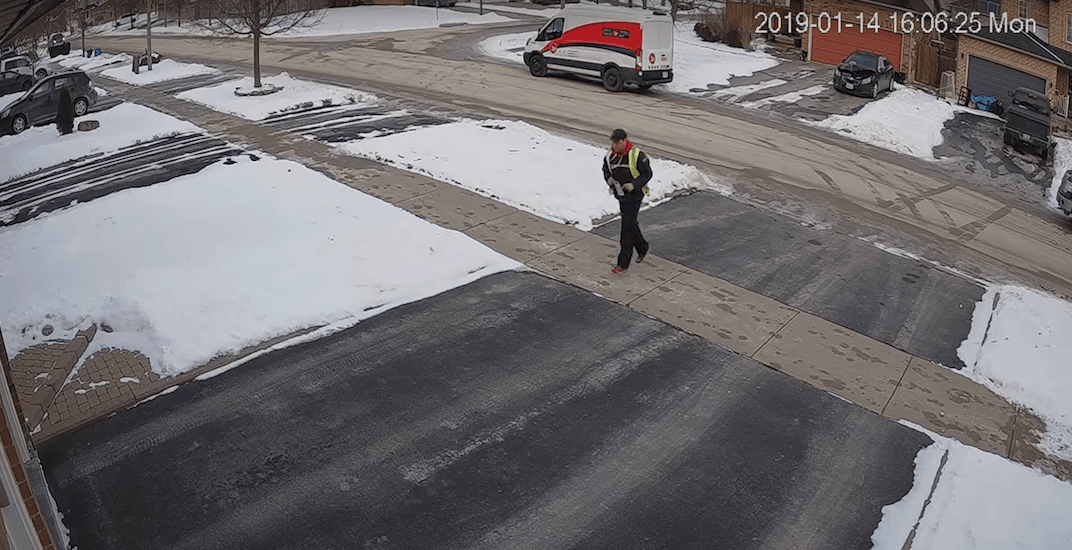The Plight Of IDF Soldiers Held Captive: Their Families And Their Fight

Table of Contents
H2: The Emotional Toll on Families of Captured IDF Soldiers
The emotional burden carried by families of IDF soldiers held captive is immense and multifaceted. The experience profoundly impacts their mental health and well-being, often leading to long-term psychological consequences.
H3: The Crushing Weight of Uncertainty
The prolonged absence of a loved one, coupled with the lack of reliable information, creates a crushing weight of uncertainty.
- The psychological impact of prolonged captivity on family members: Families endure immense stress, anxiety, and fear, often experiencing symptoms of PTSD even before the soldier's return. The constant worry about their well-being and potential harm takes a significant toll.
- Dealing with conflicting information and media reports: The constant barrage of news, often contradictory and unreliable, adds to the confusion and emotional distress. Families struggle to discern truth from speculation, further fueling anxiety.
- The constant fear of the unknown and potential harm to the captive soldier: The uncertainty about the soldier's treatment, health, and safety is a persistent source of anguish. Nightmares, intrusive thoughts, and hypervigilance are common experiences.
- The challenges of maintaining hope amidst despair: Sustaining hope amidst the overwhelming negativity and uncertainty requires incredible resilience. Families often grapple with feelings of helplessness and despair.
H3: Social Isolation and Stigma
The sensitive nature of the situation often leads to social isolation and a lack of understanding from others.
- The social isolation experienced by families due to the sensitive nature of the situation: Many families find it difficult to discuss their experiences with friends and acquaintances who may not fully grasp the emotional weight of their situation.
- Dealing with societal misconceptions and lack of understanding: Families often encounter insensitive comments or a lack of empathy, exacerbating their feelings of isolation and adding to their emotional burden.
- The burden of carrying the emotional weight without sufficient support: The lack of adequate support systems can leave families feeling overwhelmed and alone in their struggle.
- The need for specialized mental health services tailored to this unique situation: Access to specialized mental health services designed to address the unique psychological challenges faced by these families is crucial for their healing and recovery.
H2: The Fight for Their Release: Navigating Bureaucracy and Advocacy
Securing the release of IDF soldiers held captive is a complex process involving various agencies and actors. Families often find themselves navigating a bureaucratic maze while simultaneously advocating for their loved ones.
H3: The Role of Governmental Agencies and Organizations
Governmental bodies play a critical role in securing the release of captured soldiers. However, the process is often slow and complex.
- The responsibilities of government bodies in securing the release of captured soldiers: Government agencies are responsible for coordinating diplomatic efforts, negotiating with captors, and ensuring the safety and well-being of the captive soldiers.
- The coordination between different agencies (e.g., military, foreign affairs): Effective coordination between different government agencies is crucial for a successful outcome. Communication breakdowns can significantly hinder efforts.
- The effectiveness of diplomatic efforts in negotiating prisoner releases: The success of diplomatic efforts often depends on various political and geopolitical factors, making the process challenging and unpredictable.
- The limitations of governmental actions: Governmental agencies may face limitations due to political constraints, security concerns, or the nature of the captors.
H3: The Power of Public Advocacy and Awareness
Public awareness and advocacy play a vital role in putting pressure on relevant authorities and securing the release of captive soldiers.
- The importance of raising public awareness about captive soldiers: Public pressure can encourage governments to prioritize the release of captive soldiers and dedicate more resources to the process.
- The effectiveness of media campaigns in influencing government actions: Well-planned media campaigns can raise public awareness, generate public support, and influence government policy.
- The role of NGOs and activist groups in supporting families and advocating for their cause: NGOs and activist groups provide valuable support to families and lobby for policy changes.
- Utilizing social media for raising awareness and mobilizing support: Social media platforms are powerful tools for raising awareness, mobilizing public support, and coordinating advocacy efforts.
H2: The Long-Term Impact on IDF Soldiers and Their Families
The experience of captivity leaves lasting effects on both the soldiers and their families, impacting their physical and mental health, as well as their social and familial relationships.
H3: Physical and Psychological Rehabilitation
Rehabilitation for released soldiers is a long and challenging process requiring specialized care and support.
- The challenges of physical and psychological recovery for released soldiers: Released soldiers may experience physical injuries, PTSD, depression, anxiety, and other trauma-related disorders.
- The need for comprehensive rehabilitation programs and ongoing support: Comprehensive rehabilitation programs, including physical therapy, psychological counseling, and social support, are vital for recovery.
- Addressing PTSD, depression, and other trauma-related disorders: Specialized treatment for PTSD, depression, and other mental health issues is crucial for the soldier's long-term well-being.
- The importance of family support during the rehabilitation process: Strong family support is crucial for the soldier's successful rehabilitation and reintegration into society.
H3: Reintegration into Civilian Life
Reintegrating into civilian life after prolonged captivity presents significant challenges for both the soldier and their family.
- The challenges of reintegrating into society after prolonged captivity: Soldiers may struggle with readjusting to daily life, re-establishing relationships, and finding employment.
- The support systems necessary to assist with re-entry into daily life: Comprehensive support systems, including job training, financial assistance, and social support groups, are crucial for successful reintegration.
- Addressing potential employment and financial difficulties: Financial assistance and job training programs can help soldiers overcome employment and financial obstacles.
- The long-term effects of captivity on family dynamics and relationships: Captivity can strain family relationships, requiring ongoing support and counseling to help families adapt and heal.
3. Conclusion:
The plight of IDF soldiers held captive is a complex issue with far-reaching consequences. The emotional toll on families, the bureaucratic challenges of securing release, and the long-term effects of captivity highlight the urgent need for increased support and concerted action. By raising awareness, advocating for improved support systems, and strengthening diplomatic efforts, we can work collectively to ensure the safe return of all IDF soldiers held captive and provide the necessary support to help them and their families heal and rebuild their lives. Let us continue to fight for the safe return of all IDF soldiers held captive and provide unwavering support to those affected by this devastating reality. Learn more about how you can contribute to supporting families of IDF soldiers held captive and advocate for their release.

Featured Posts
-
 How Canada Posts Problems Benefit Rival Delivery Services
May 26, 2025
How Canada Posts Problems Benefit Rival Delivery Services
May 26, 2025 -
 Thierry Ardisson Prend La Defense De Laurent Baffie Analyse De Ses Blagues
May 26, 2025
Thierry Ardisson Prend La Defense De Laurent Baffie Analyse De Ses Blagues
May 26, 2025 -
 Mathieu Van Der Poels Paris Roubaix Assault Legal Action Underway
May 26, 2025
Mathieu Van Der Poels Paris Roubaix Assault Legal Action Underway
May 26, 2025 -
 Jadwal Lengkap Moto Gp Inggris 2024 Jangan Sampai Ketinggalan
May 26, 2025
Jadwal Lengkap Moto Gp Inggris 2024 Jangan Sampai Ketinggalan
May 26, 2025 -
 Bundesliga Rueckkehr Des Hsv Feierlichkeiten Und Ausblick
May 26, 2025
Bundesliga Rueckkehr Des Hsv Feierlichkeiten Und Ausblick
May 26, 2025
